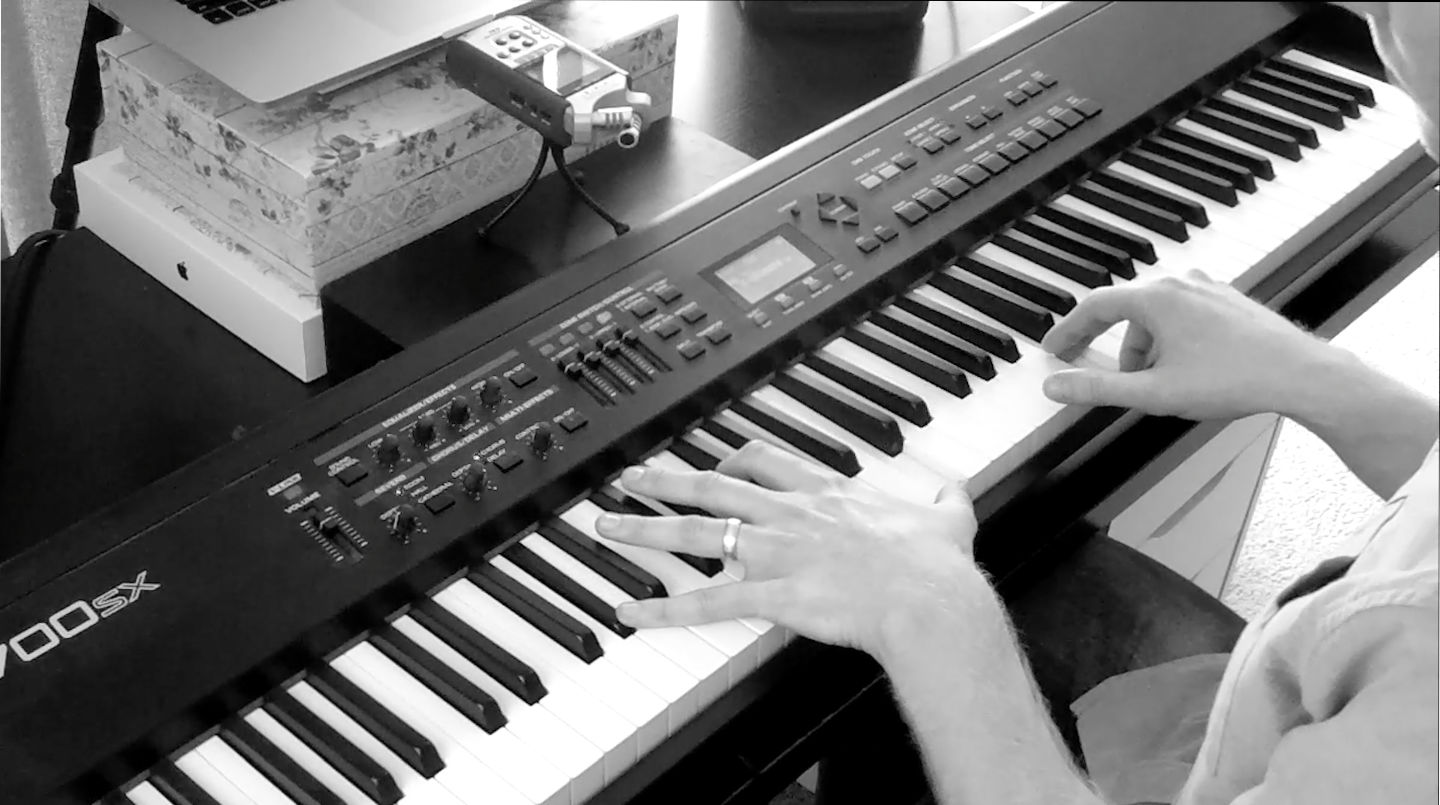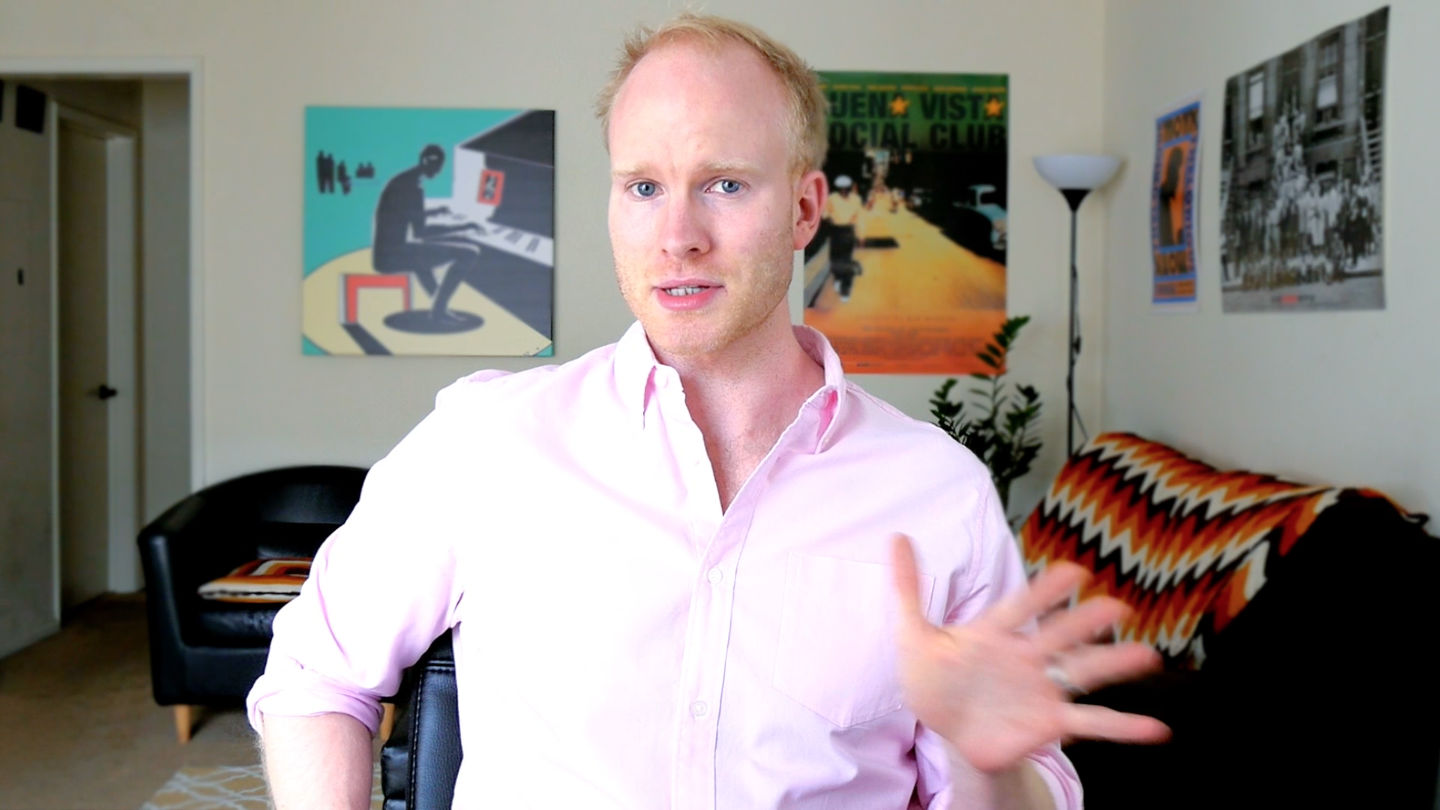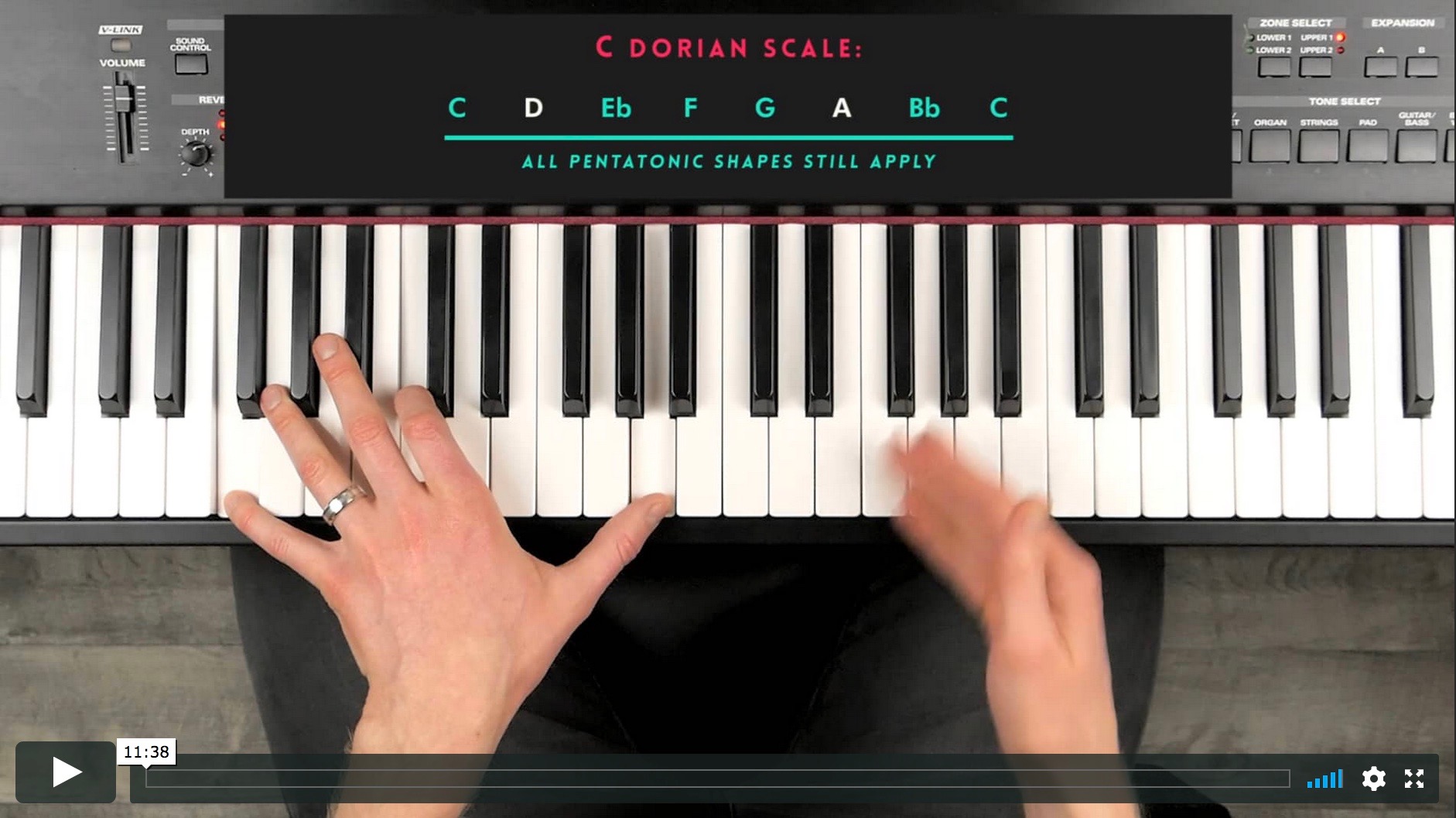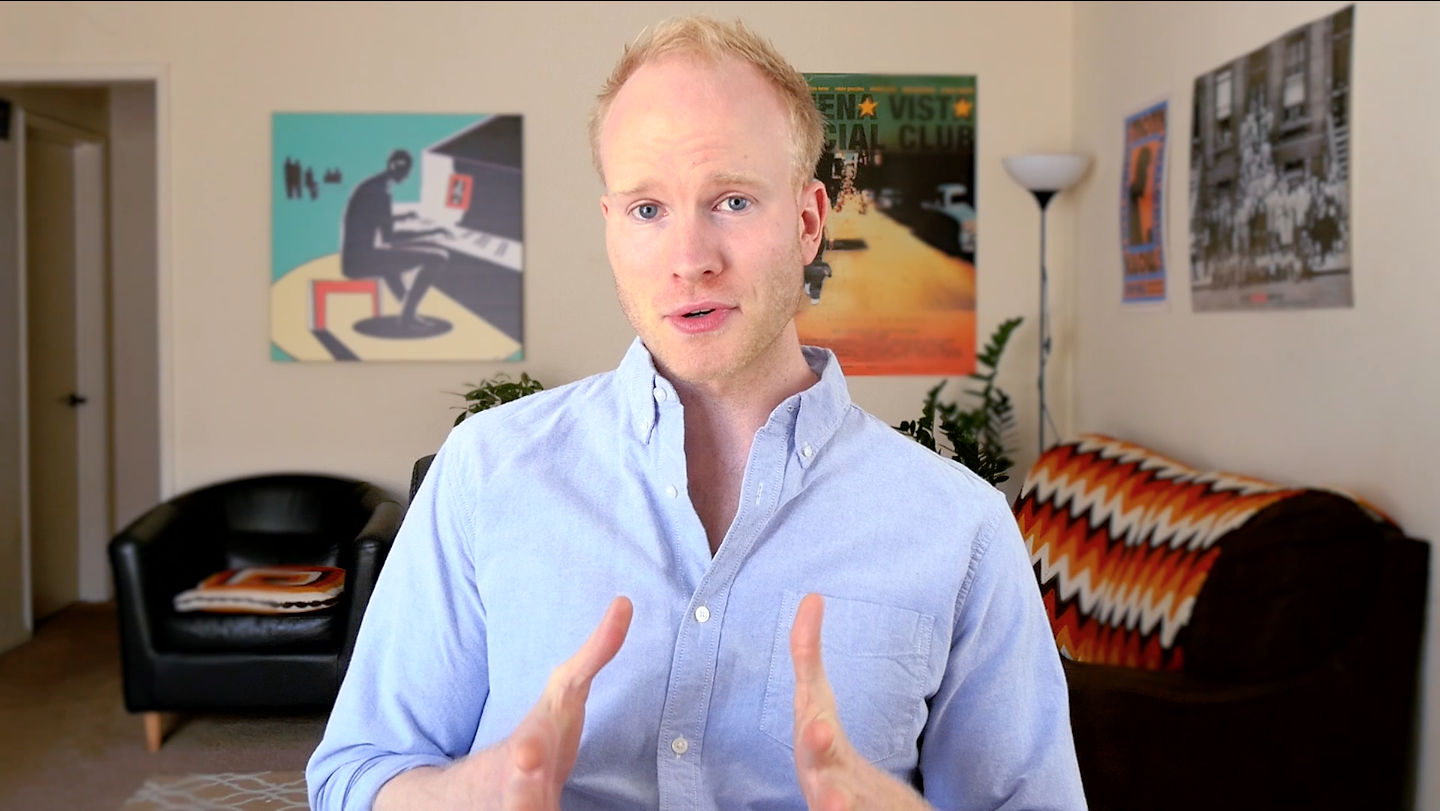VIDEO 1 (of 4) | Fixed Key Learning
Can’t wait? Click here to watch video 2 now!
Your Questions Answered
“Do I have to stop playing my repertoire in other keys?”
No – you can continue playing some music in other keys – with your band, choir, or playing from sheet music in a book.
My Fixed Key Method is for three main things: ear training, composition and learning theory.
I want you to listen to all music as though it’s in your one key – so that you end up transcribing songs in that key.
When you compose, compose in your one key (or at least start in your one key – you can always modulate or venture out of key).
And when you learn new music theory (chord progressions, techniques, etc) – learn them in your one key. This often means you’ll have to transpose new concepts into your one key. It’s an additional step, but it’s well worth it for the clarity you’ll get.
“What about music that’s written in the modes, or other types of scale?”
The bigger picture to the Fixed Key Method is that we’re lining everything up from C.
When it’s time to learn about the modes and other scales – you should line all modes up from C (C Dorian, C Phrygian, C Lydian, etc). Transcribe and compose in new scales lined up from C first.
A lot of the things you learn in C minor scale will get carried over to the modes, and other types of scale. Things like:
– Common melodic shapes (you’ll still encounter many of the same shapes in other scales)
– The sound of Tonal Colors (will still apply to other scales that share the same scale degrees)
– Common chord progressions, Bass line shapes, and more.
There’s a lot of overlap between what goes on in C minor scale, and what goes on in C Harmonic minor, C Dorian, C Phrygian, C Mixolydian, and more.
So the Fixed Key Method really means ‘line EVERYTHING up from C – scales, chords, voicings – and learn things from C first’. I only call it ‘Fixed Key Learning’ because 99% of the music you hear everyday is diatonic (it’s written within one key) – so most of the time we’re transcribing songs within one key – C minor / Eb major.
“I play a transposing instrument that’s in Bb (trumpet). If I want to transcribe songs in the key of C minor, does that mean I have to play them in D minor on my instrument?
No – nothing changes for transposing instruments. You would still play from the notes of C minor on your transposing instrument. And it doesn’t matter that when you play, the notes being produced are actually the notes of Bb minor.
My Fixed Key method is for your thinking only – and the goal is not to memorize the actual pitches of notes, like D, or Bb, or G, etc. We’re thinking in one key, so that we learn how music works – the common shapes from one song to another.
So continue transcribing in your one key – and don’t make any adjustments for your transposing instrument.
By the way – I play trumpet too, and I’ve played as many songs by ear on my trumpet as piano. So it makes no difference.
Objection: “But it’s not much use when you’re called up to the bandstand to play a tune by ear, and all you know is one key”
Playing songs in one key isn’t the end goal. Once you’ve mastered playing songs by ear in one key, it’s then a relatively easy task to start transposing what you know to the 11 other keys.
Once you truly master one key in depth – you realize that there’s only really one key anyway. It’s an interval pattern – a set of chords, a pair of relative major / minor scales, a pentatonic scale, and a bunch of common shapes (for melody and chord progressions). Once you’ve learned that interval pattern in one key, you can then rebuild it to start from any other note.
You might be surprised at how common it is for composer’s to have their own favorite key. Most classical composers, and jazz composers are known to have a specific key that they gravitate towards.
You probably already have a favorite key, which you tend to play in. I’m just encouraging you to double down on exploring that key – get rid of the unnecessary confusion, reduce the mental energy required to transition to a new key (where all the same music theory applies), and to minimize the number of moving parts so that you can see clearly how music works. Music theory isn’t as complicated as you might think – especially when you view everything in one key for a while.
(And you would also be surprised by how rarley you get ‘called up to the bandstand’ to play something that’s completely unrehearsed).
-
julianbradley
-
Vicki Carr
-
Caleb
-
Sang Hun Han
-
KiWi
-
adrian ryszka
-
Paul Rodger
-
Susan Harris
-
LG White
-
a_tired_dude
-
julianbradley
-
David Gerwig
-
julianbradley
-
julianbradley
-
Marino Galli
-
julianbradley
-
julianbradley
-
julianbradley
-
jy iro
-
Asward Jno Charles
-
Pacco
-
Ron Westerbeek
-
Diane Ridaeus
-
Izaak Wierman
-
fredo
-
Charmian O’Brien
-
Payam Nazerian
-
Terry
-
carlos noguera
-
MT Mals
-
Jude
-
julianbradley
-
julianbradley
-
julianbradley
-
Frank Hetherton
-
ZiglioNZ
-
Merran Dieckfoss
-
Marc Blandel
-
Paul Moore
-
Charles Fournier
-
David Aston
-
gill
-
julianbradley
-
julianbradley
-
julianbradley
-
julianbradley
-
julianbradley
-
julianbradley
-
julianbradley
-
julianbradley
-
julianbradley
-
Jane Terry
-
julianbradley
-
Merran Dieckfoss
-
Nikki
-
Erica Danielle Simon
-
Mark Ward
-
Mark Ward
-
Eugen Des
-
Razef Khan
-
Sean Goodrich
-
Patrick Weathersby
-
Karen
-
Julio A. Rodríguez
-
Mel
-
Mr. TW
-
Ollie Hickson
-
Linda Lin
-
Louis Thompson
-
vernsis
-
Omar Galindez
-
LouMinn
-
Oliver Warren
-
Himanshu Chandel
-
Himanshu Chandel
-
Hoomam Al Naboulsi
-
Gibson355
-
endofthewld
-
Ursina



